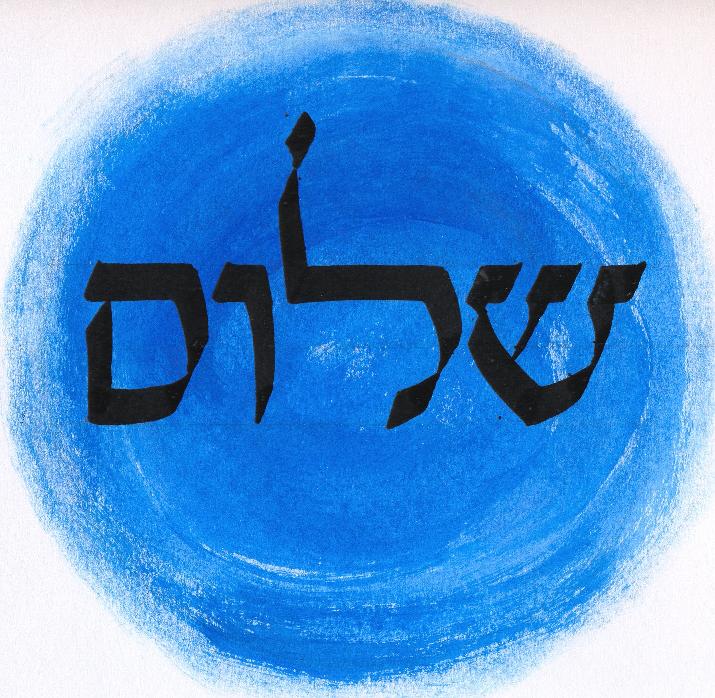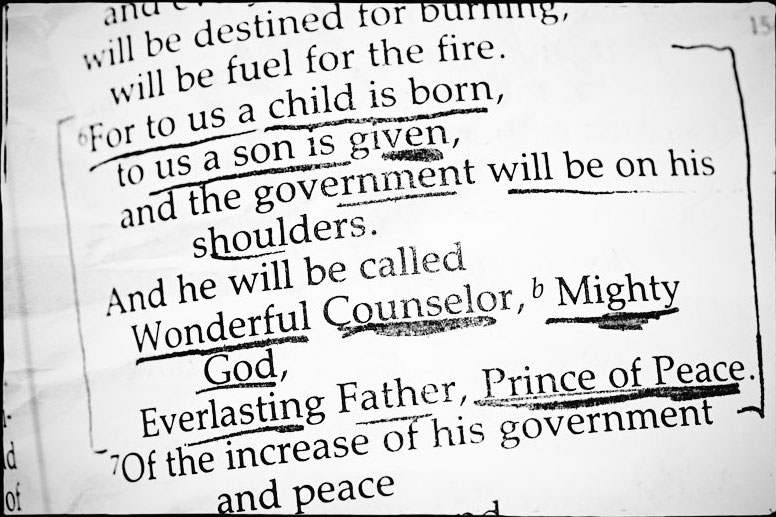 Peace
Peace Entries in Peace (21)
Living The Secret
 Wednesday, August 17, 2016 at 03:42PM
Wednesday, August 17, 2016 at 03:42PM  Some secrets are safe—even when you tell them to others—because some secrets must be lived, rather than known.
Some secrets are safe—even when you tell them to others—because some secrets must be lived, rather than known.
I found just such a secret buried deep in a stack of letters from a man stuck in prison, the kind of prison where you had to provide your own food and clothing, which was a problem because you were in prison. If you were out of friends you were outta luck. The kind of prison where you sat before you went to trial, wondering if you were going to trial. The man in prison had been beaten, healed, scarred, and beaten again. Shipwrecked three times, and far from home. Still, he had a secret, and he shared it with his friends:
I have learned to be content whatever the circumstances. I know what it is to be in need, and I know what it is to have plenty. I have learned the secret of being content in any and every situation, whether well fed or hungry, whether living in plenty or in want. (Philippians 4:11-12)
This man, Paul, a follower of Jesus, was falsely accused and in prison awaiting trial for more than a year. He had discovered the secret of contentment. Can you imagine yourself, in the midst of all those circumstances Paul faced, content?
Contentment is perhaps even more of a secret today because the Western world is locked up in its own striving and appetites, wholly unaware of its blessings. Can we hear Paul’s whisper through the clamor of consumerism today? Consider just a few insights into his secret:
§ Contentment does not depend on circumstances: Paul could be content in the midst of plenty or little. In the Western world plenty is not enough: we are a people who cannot be at rest even when we are surrounded by every comfort.
§ Contentment does not mean giving up: Paul still had places to go and things to do. He was not a fatalist who accepted every event in his life as the final word. Yet even when he faced obstacles and frustration he found contentment within.
§ Contentment is not the result of positive thinking: There’s an old story about the child given a pile of horse manure for his birthday: he joyfully grabbed a shovel and said, “there’s got to be a pony in there somewhere!” Not so. Sometimes there is no pony: life simply covers us with dung. The danger of positive thinking is that it comes from our own strength, and eventually that resource runs dry.
The secret of contentment runs deeper. It’s born out of relationship to an unchanging person and his unshakable kingdom. Let’s tune our ears and listen to the man in prison. His words are like a treasure map: hearing the secret is not enough; it must be discovered. It must be lived. At the end of the search we will discover ourselves to be the kind of people so in tune with the Kingdom of God that we can navigate difficult times, supplied not only with strength, but also peace.
God's Gift of Peace
 Tuesday, June 7, 2016 at 11:06AM
Tuesday, June 7, 2016 at 11:06AM  Some things we say so often it’s easy to forget they are powerfully, transformationally true. Like children reciting “E=Mc2” we are unaware of the power on our lips. In church services, for example, some liturgical phrases have the power to change the world. Consider the congregational greeting, “Peace be with you” and the group response, “And also with you.” It’s a simple exchange, offered and returned whenever God’s people gather.
Some things we say so often it’s easy to forget they are powerfully, transformationally true. Like children reciting “E=Mc2” we are unaware of the power on our lips. In church services, for example, some liturgical phrases have the power to change the world. Consider the congregational greeting, “Peace be with you” and the group response, “And also with you.” It’s a simple exchange, offered and returned whenever God’s people gather.
God’s peace is a gift. It is ours to receive and ours to give.
On the darkest night in history Jesus said to his friends, “Peace I leave with you; my peace I give you. I do not give to you as the world gives. Do not let your hearts be troubled and do not be afraid.” (John 14:27) Jesus had looked ahead: he saw the betrayal and violence that would arrive before sunrise. He saw the cross waiting for him. He wanted to equip his friends. He offered peace: a peace capable of overcoming troubled hearts and abject fear. He offered the inbreaking of a kingdom characterized by righteousness, peace, and joy. On that sacramental night, the high priest gave not only bread and wine: he gave peace as well.
His words were not a command; they were a gift. He did not offer Biblical instruction nor did he discuss strategic insight. Indeed, what he offered was beyond the disciples’ understanding--yet Jesus gave it anyway. He offered something from another world. In the Kingdom of God peace is something other than a high-minded ideal. Peace is how God equips his people. Peace is so real it can be carried and offered to others.
The antidotes to uncertainty and fear are not knowledge and courage, but peace: freely received, and freely given. Peace has been God's gift to you from the very beginning. He offered it that dark night. He offers it still.
Panic or Peace?
 Tuesday, May 31, 2016 at 11:05AM
Tuesday, May 31, 2016 at 11:05AM  Winston Churchill said it first: “Never let a good crisis go to waste.” If you’re trying to manipulate others into action, panic is wonderful ally. Fear issues a standing invitation: everything is an emergency, and we are all going to die.
Winston Churchill said it first: “Never let a good crisis go to waste.” If you’re trying to manipulate others into action, panic is wonderful ally. Fear issues a standing invitation: everything is an emergency, and we are all going to die.
In the marketplaces of politics and consumerism the voices of this age demand attention. Fear sells everything from mouthwash to medicine. Candidates run for political office by cranking the levers of fear. If we do not listen to these voices, they raise their volume to a glass-breaking pitch. Anyone who is not panicking clearly doesn’t understand the situation.
We live in the age of serial crises: elections, government corruption, climate change, financial collapse, Kayne’s latest album. Anyone who isn’t panicking obviously doesn’t understand the situation. There is, however, another voice, a voice that speaks from the age to come, and addresses the fears of this present age. It’s the voice of peace. The voice of God. This voice has been speaking for centuries. This voice walked among us and spoke peace to fear. Here are a few examples:
Professional mourners wail outside the house because a young girl is dead. They excel in giving voice to grief and loss, and why not? It’s all in a day’s work. But Jesus asks, “Why all this commotion?” Instead of death, he sees a sleeping child. This elicits laughter and scorn, the cousins of crisis. In the end, the Lord’s quiet voice reaches the only ears that matter: “Talitha, koum.” The little girl gets up, and has a bite to eat.
There’s a woman tossed down, half-naked, into the dirty street. Around her angry voices cry, “Stone her!” They turn their attention to Jesus, who stoops to street level and presses his finger into the dirt. The voices cry again and again, and demand the Lord’s judgment. But they must quiet down in order to hear his words. His peaceful voice overrules the fearful voice of orthodoxy. Instead it offers peace to every sinner and an invitation to go and sin no more—not out of fear, but from gratitude.
Even the Lord’s closest friends know the songs of panic. When their boat is nearly swamped by wind and waves, they come to Jesus, who is sleeping in the back, resting on a cushion. “Rabbi! Don’t you care if we drown?” And this is the issue: when we choose to enter into crisis it reveals that in our fear and panic we are convinced that God doesn’t care. He doesn’t answer. He’s asleep! What can you do when God is asleep? But what if Jesus, asleep on a cushion, is the word of God to us? What if God is dreaming of better things for us? His inaction is a parable. Finally the Lord awakes and says, “Don’t be afraid, where is your trust?” He wasn’t just asking the disciples in the boat.
The voice of fear cries out for action. It shouts: do something, take up arms, mount your horse and ride! But the man asleep on the cushion lives out the word of God to us: he saw it in the Old Testament: “In repentance and rest is your strength, In quietness and trust is your strength.” He lived these words to the full, and then he gave peace to his friends, like a gift: “Peace I leave with you; my peace I give to you; not as the world gives do I give to you. Do not let your heart be troubled, nor let it be fearful.”
The only question is whether we will receive the Eternal Sabbath, or take up our horses to flee. Panic tells the lie, “God doesn’t care.” But Jesus tells the truth, even in his sleep.
Peace be with you . . .
 Monday, June 29, 2015 at 07:48AM
Monday, June 29, 2015 at 07:48AM  In church we say things so often it’s easy to forget they are true. More than true: some liturgical phrases have the power to change the world. Like children reciting E=Mc2 we are unaware of the power on our lips. Consider the simple greeting, “Peace be with you” and the group response, “And also with you.” It’s a simple exchange, offered and returned where God’s people gather.
In church we say things so often it’s easy to forget they are true. More than true: some liturgical phrases have the power to change the world. Like children reciting E=Mc2 we are unaware of the power on our lips. Consider the simple greeting, “Peace be with you” and the group response, “And also with you.” It’s a simple exchange, offered and returned where God’s people gather.
Peace is a gift, ours to receive, and then ours to give. On what was perhaps the darkness night in history Jesus said to his friends, “Peace I leave with you; my peace I give you. I do not give to you as the world gives. Do not let your hearts be troubled and do not be afraid.” (John 14:27) Jesus saw the betrayal and violence that would arrive before sunrise. He saw the hopelessness of midday. He wanted to equip his friends. He offered peace, capable of overcoming troubled hearts and abject fear. The same Jesus who could sleep on a boat during a violent storm said to his friends, "My peace I give to you." His words were not a command, they were a gift. He did not offer Biblical clarity, nor strategic insight. Indeed, what he offered passed understanding. He offered something from another world. He offered the in-breaking of a kingdom characterized by righteousness, peace, and joy. On that sacramental night, the high priest gave not only bread and wine. He gave peace as well.
And yet peace is a strategy as well. Jesus trained us to offer peace: “Whatever house you enter, first say, ‘Peace to this house.’ If a man of peace is there, your peace will rest on him; but if not, it will return to you.” (Luke 10:5-6) Peace is something a disciple carries without benefit of a bag or purse. Peace is a gift we give to anyone who shows hospitality. Peace is the starting point of all ministry, the axis of the good news. Peace is tangible: it is given and received—yet peace has a mind of its own, choosing whether to stay or return.
In the Kingdom of God is peace is more than a platitude. Peace is something other than a high-minded ideal. Peace is how God equips his people. Peace is so real it can be carried and offered to others. What if the antidotes to uncertainty and fear are not knowledge and courage, but peace: freely received, and freely given?
What if peace has been God's gift to you from the very beginning, and he is waiting for you to both receive it and give it to others?
Peace be with you.
Why not receive Students of Jesus in your inbox? Subscribe to our email newsletter and never miss a post.
Government and Peace: In Him, for Me
 Thursday, May 28, 2015 at 09:15AM
Thursday, May 28, 2015 at 09:15AM  For a child will be born to us, a son will be given to us;
For a child will be born to us, a son will be given to us;
And the government will rest on His shoulders;
And His name will be called Wonderful Counselor, Mighty God,
Eternal Father, Prince of Peace.
There will be no end to the increase of His government or of peace . . . (Isaiah 9:6-7)
The good news of Jesus Christ is the announcement of a king and his kingdom of peace. The good news is greater than the someday-promise of heaven; it's that heaven is breaking into the earth even now, that eternal life is here and now. It offers the life of Heaven to whoever comes under the reign of Heaven’s king. The gospel of the Kingdom of God is a strange announcement, because it combines the worst images of humanity with the secret hopes of every human soul.
“The worst images of humanity, you say?”
Yes, I do. Consider the simple word government. To modern Western ears government denotes the great machinery of federal god: a faceless monolith of regulation and control backed by incomprehensible trillions of dollars, enforced by millions of people, each one incapable of working justice or peace individually, working to carry out the incomprehensible will of no one in particular. Nor were past ages any better: government meant the divine right of kings and queens who somewhere in their family history violently rose to a throne only to claim that their every opinion represented the will of a god whop was nowhere to be seen. Yes: government has nearly always represented control imposed upon those under its fictitious thumb.
But I’m not finished: peace is no better. The best we can manage of peace is the absence of war. Peace is the period in which the nations of the world re-arm and re-train while studying the conflicts of the past. To the peoples of the earth peace is a cease-fire at best. Even the great conquerors of history needed to catch their breath every now and again. Isaiah’s beautiful passage feels like nothing more than the poetry of a dreamer. Even in the age of Christianity governments have marched and ruled, promising peace without ever pausing to define the word beyond its most surface meaning. The meaning of peace has little to do with nations and states; it has everything to do with human hearts—with my heart.
Government and peace: perhaps two of the most ill used words of any language or era. Yet I believe the prophet. I believe there is a king; that he brings a kingdom. Even more foolishly, I believe he brings his kingdom here and now to me, my family, and my neighbors. I believe the very words government and peace themselves need redemption every bit as much as my soul. I sit before Isaiah’s words and listen. Will you listen with me?
A child born; a son given: in these words I hear that the benefits of heaven are delivered to us in the helpless state of a child, and we bear the responsibility of nurturing the full-grown son. We receive the Christ child: do we allow him to grow within us?
Shouldered government: in these words I see that the location of government is neither in the consent of the governed nor the power of those who seize control, but upon the shoulders of God. To whatever degree we think government originates from us we are doomed to failed government. Government flows from the head, from the child-become-son. In its truest form government is not about societies at all, but whether I will live under the management of Heaven. Government is not societal; it is personal.
Wonderful Counselor, Mighty God, Eternal Father, Prince of Peace: how do I see the Governor? If I receive him as my wonderful counselor I will flourish by his counsel; if I rest in his might I will not lean on my own strength; if a see a father I become part of the family; and if I locate peace in the child-become-son, I receive what only he can give.
Government and peace are meant to increase in me. Their source is beyond me, but their home is in me. Why look at the great wide world for government and peace? He offers it to me, personally. The promise of increase is because in him there is always more: more of his gracious rule in my life, and more peace for me to discover.
Why not receive Students of Jesus in your inbox? Subscribe to our email newsletter and never miss a post.



